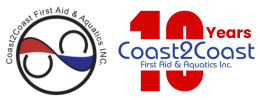We all want to keep our loved ones safe, and take multiple measures of precaution to ensure their safety. We get everyone to wear their seat belts, make sure we cross the road in a safe manner. We keep bandages and medicine at home and at work…but do we really know how to respond to serious injury? When a pot of boiling water causes severe burns? When a child gets cut by a sharp kitchen utensil? When someone trips on the stairs and breaks an arm or a leg?
The sad truth is that our knowledge is, on average, based on fictional shows or films. That is not adequate knowledge to say the least. Taken at face value, it can even be truly dangerous in an emergency.
For one example, CPR courses teach us to perform cardiovascular resuscitation without endangering the unconscious person’s life. For another example, CPR and First Aid classes teach us how to lay a bandage or a tourniquet, and other essential skills anyone will wish they had known when their loved one is bleeding in their arms.
Let’s go into some detail as to what you get when you enroll into a series of CPR and FIrst Aid classes. This is a general breakdown of the essentials, not a specific course description. Still, it is enough to get an idea of the value they carry.
What do CPR Courses Teach
1. The EMS system
2. Airway emergencies
3. Breathing and Circulation emergencies
4. First aid for respiratory and cardiac arrest
5. Use of an Electronic Defibrillator
6. Bleeding and Wound Care
7. Head and spine injuries
8. Bone, muscle and joint injuries
9. Sudden Medical Emergencies
10. Environmental Emergencies
11. Poisonous Substances
It is our firm belief that as many people as possible should learn and get a CPR level C certification or another essential First Aid course.
It has been proven without a doubt that whether at home, at work, or outdoors, the chances of an injured person become considerably better when there is one other person around who’d been taught those significant skills. One of the best things is that the course is not even that long. Most courses are between one and two days long, six to eight hours a day. Take the time to enroll, and take your family with you.
Get on board with one of our First Aid CPR courses and keep each other safe with the important, invaluable knowledge this will gain you!





